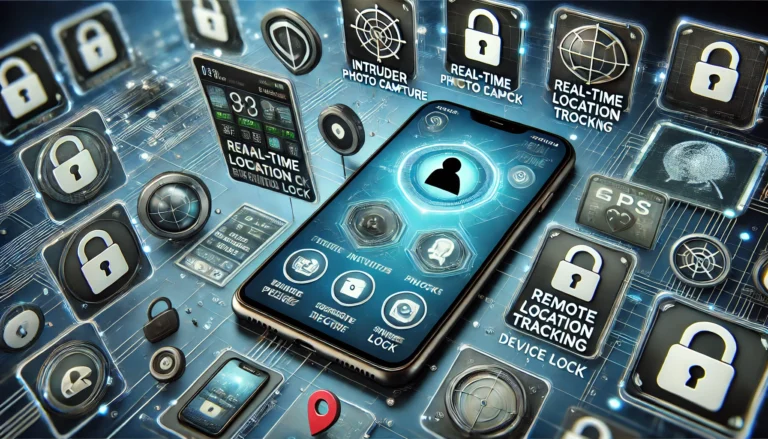Apps to Recover Deleted Photos: How to Rescue Your Lost Memories

Digital photography has become an inseparable part of our everyday lives. Taking pictures of memorable moments, beautiful places or even mundane situations has become quick and easy thanks to the cameras built into every modern smartphone. Unfortunately, the convenience of preserving our memories can be risky – we’ve all accidentally deleted photos or formatted a memory card without checking what was inside. There’s nothing more frustrating than losing an important photo that can’t be reproduced.
Fortunately, modern technology leaves no room for such accidents: recovering deleted photos has become a standard task for many mobile and computer users. Over time, many applications and software have been created to help people recover lost photos, offering a second chance to those who thought they had lost their memories forever. These applications work by scanning the device’s memory and looking for traces of permanently deleted data without being overwritten. This allows files that have been deleted but can still be recovered to be restored, even if they were once “gone”.

How to Recover Old Photos
Find out now what the Applications are
While there are many similar apps available, they all have different levels of effectiveness, ease of use, and accessible features. Some apps cover many different file formats, while others are simply designed to recover photos. Choosing the right app for you depends on a few things, such as the type of device you’re trying to restore, its operating system, and the amount of data you lost. Below, we’ll take a look at some of the best options available right now to help you choose the right app to recover your memories.
1. DiskDigger
DiskDigger is one of the most popular photo recovery apps for Android. It features the ability to scan your internal memory and memory cards for deleted photos. You can then recover them with ease. This app also evaluates the restored images before saving them.
- Advantages: Simple interface and recently deleted photo recovery.
- Disadvantages: The free version has very limited functionality, with the Pro option available for better performance. Its effectiveness decreases if the file has been overwritten by new data.
2. EaseUS MobiSaver
Another commonly used tool for photo recovery is EaseUS MobiSaver. It is a viable solution for both Android and iOS. In addition to photos, this tool can be used to recover contacts, messages, and videos.
- Advantages: Support for other formats besides photos, simple interface, suitable for all people and devices.
- Disadvantages: There are limitations on the number of files that can be recovered for free, and sometimes scanning can take a long time.
3. Dr.Fone – Data Recovery
O Dr.Fone is a complete data recovery solution that includes the option to recover deleted photos. Compatible with Android and iOS devices, it stands out for its versatility and efficiency.
- Functionalities:
- Recovers photos, videos, messages, contacts and other data.
- Ability to scan both internal memory and SD cards.
- Preview files before recovery.
- Advantages: High success rate in photo recovery. Professional and well-structured interface. Support for a wide range of devices and operating system versions.
- Disadvantages: The cost of the full version can be high. The recovery process can be complex for first-time users.
4. PhotoRec
PhotoRec is a program specialized in recovering photos and other multimedia data. Although it is most famous in the desktop version, it also has an implementation for mobile devices.
- Functionalities:
- It works especially with photos and videos in a wide variety of formats.
- Compatible with FAT, NTFS, exFAT file systems.
- It does not require installation and can be used directly from the device.
- Advantages: Free and open source. High compatibility with different file systems and devices. Effective in recovering files from different media types.
- Disadvantages: Less user-friendly interface, aimed at users with technical knowledge. No customer support, due to its open source nature.
5. Undeleter Recover Files & Data
Undeleter is an alternative application to recover photos accidentally deleted by a user. The application is known for handling not only photos but also other types of information.
- Functionalities:
- Recovery of photos, videos, music, files and other information.
- Data recovery from internal memory and SD card.
- Wipe data to prevent recovery of certain files.
- Advantages: Supports a wide range of file formats. Intuitive and easy-to-use interface. Option to permanently delete files to protect privacy.
- Disadvantages: Requires root access on Android devices for full recovery. The free version displays ads and some features are limited.
Conclusion
Recovering deleted photos can be a daunting task, but the apps discussed in this article provide some efficient solutions for various situations. Each app has its own advantages and disadvantages, and choosing the best one for you depends on your device, operating system, and recovery needs.
To avoid losing photos in the future, it is advisable to back up your data regularly to cloud or external drives. However, in case you do lose photos, an effective recovery app can save your memories. Factors such as the recovery method, compatibility with your device, features of the free version, and difficulty of use should be considered. The faster you act after losing a photo, the higher the chances of successful recovery. So, always be ready to recover your memories with these tools.





